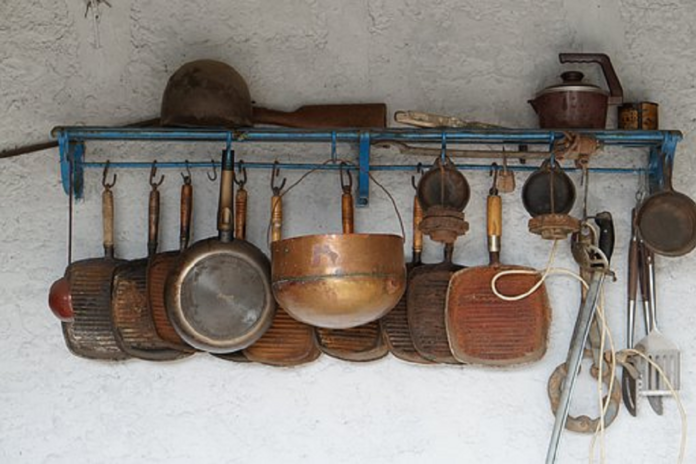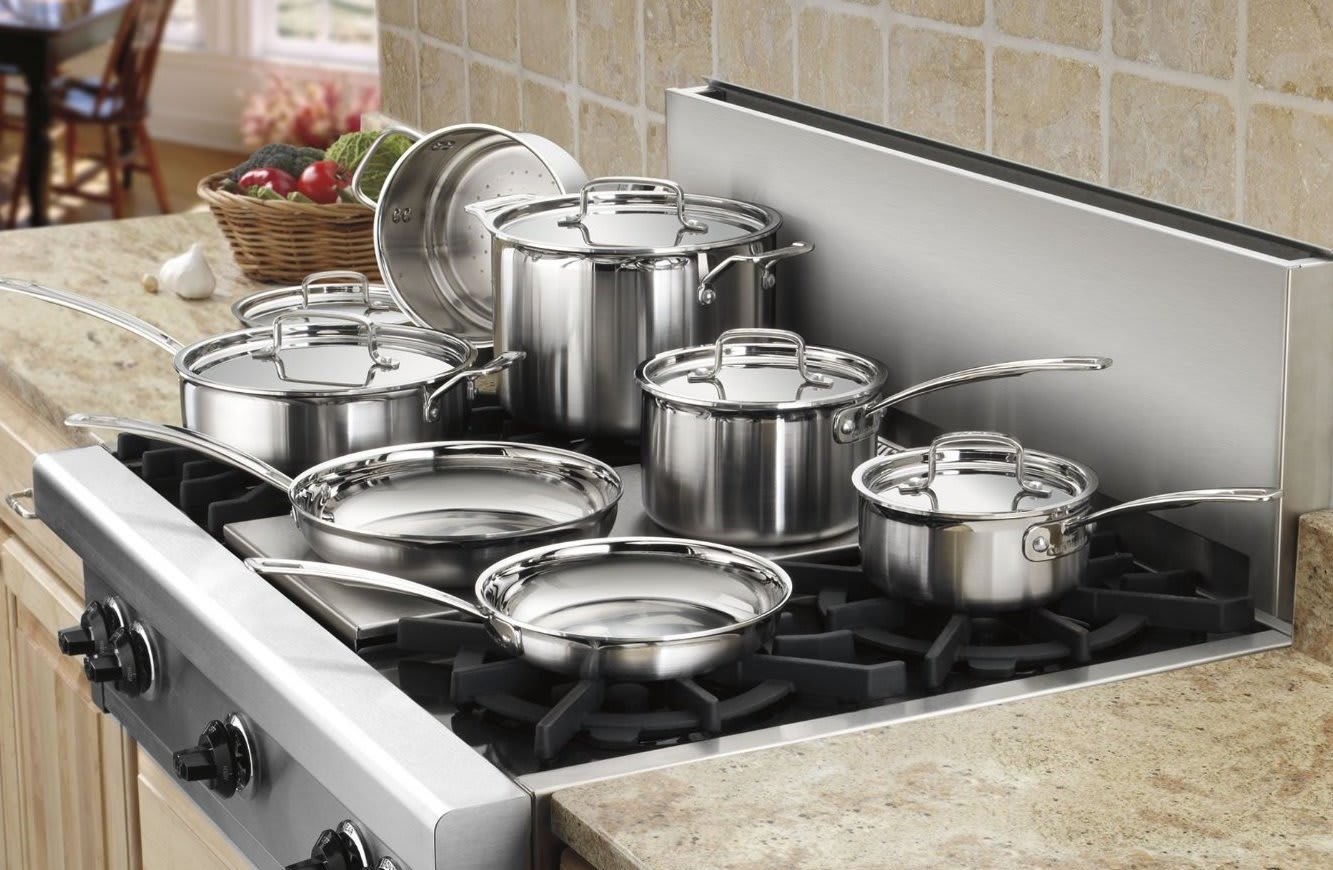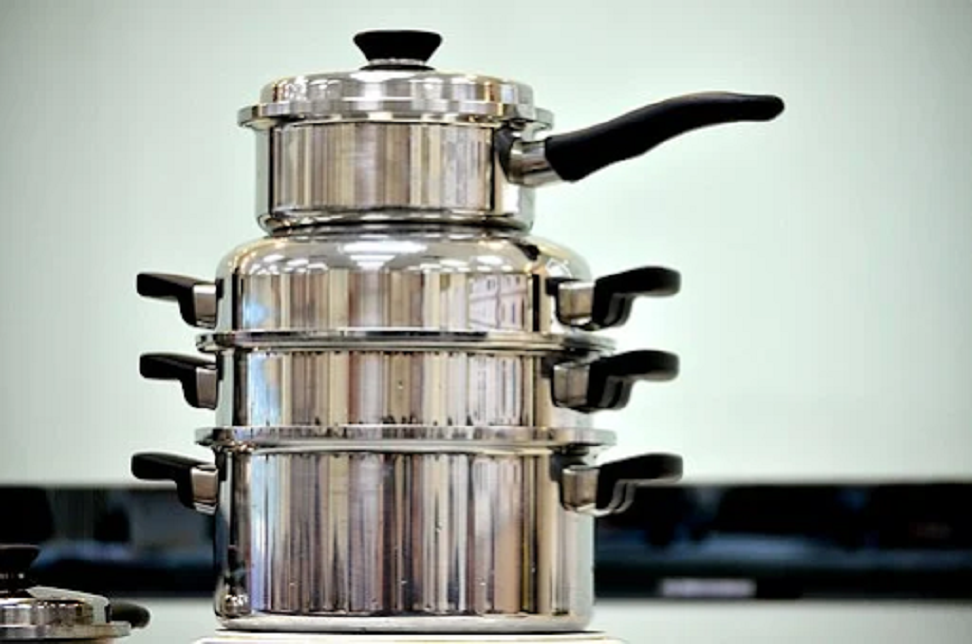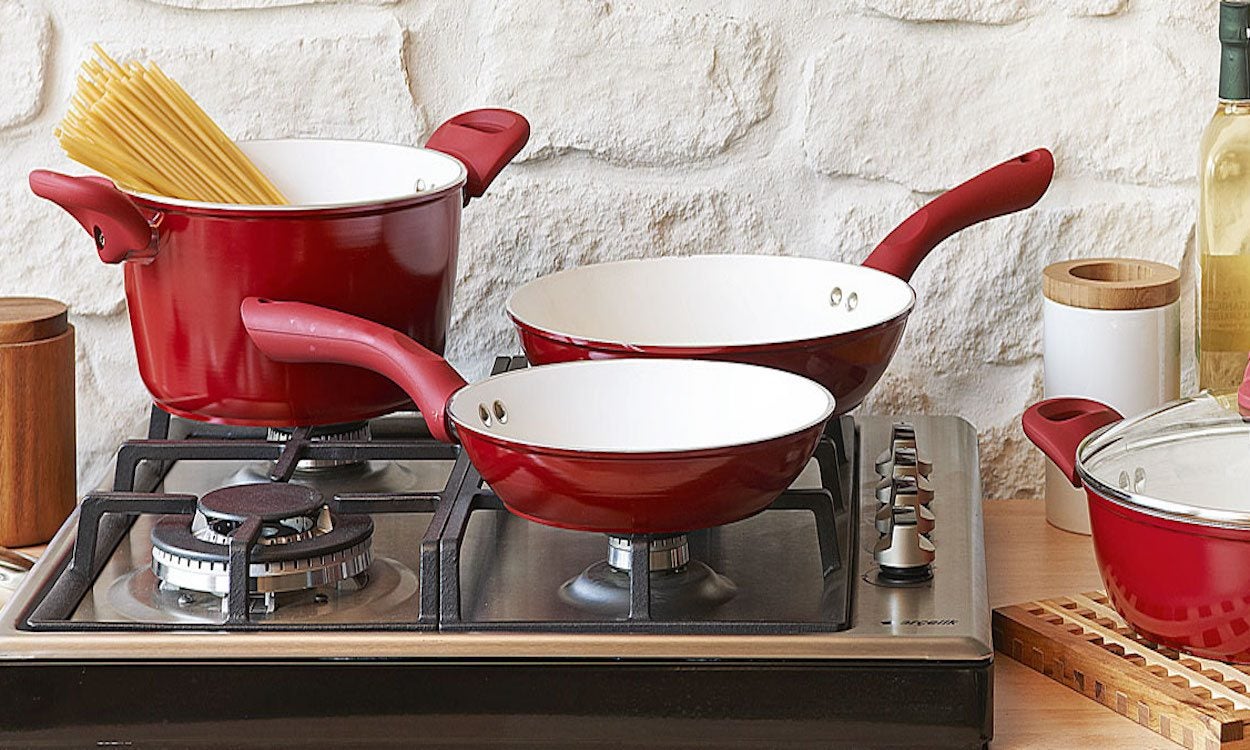Whether you run a restaurant or love cooking at home, we all know how important it is to have reliable utensils in your kitchen. The fact that you’re reading this means that you’re probably about to approach the stores to buy some cookware for your kitchen. But with the wide variety of cookware set brands, types, and sizes available on the market these days, the experience can be a bit overwhelming. So how exactly can you tell which pots and pans to buy and which ones to steer clear of? In this piece, we’ll be exploring a few essential qualities to look for when buying cookware.
Quality Material and Low Reactivity
Cooking pans and pots vary widely depending on the material they are constructed from. Well, most of them are made from metal, which can either be copper, aluminum, stainless steel, or cast iron. Some are more durable, pricier, and conduct heat better than others. Each of these materials has its pros and cons, which makes it important to take a closer look at each option to choose your preferred option.
Now, the number one factor to consider when deciding which cookware to buy is reactivity. Some metals like aluminum, for instance, tend to react with acidic dishes like tomato over time, which can intoxicate your meal and impede on its quality. This is why it is treated with a special coating. Copper, on the other hand, requires special care while cast iron cookware requires thorough cleaning to prevent rust formation. While it’s easy to maintain, stainless steel is notorious when it comes to sticky messes. Generally, non-sticks are gaining popularity in our kitchens nowadays. They need minimal cleaning and scratching to avoid the coating from scratching out.
Non-Toxic Cooking
While most of today’s cookware sets come with a non-stick coating to reduce reactivity, their safety is still a huge concern. Some common types of coating include PTFE, ceramic, silicone, anodized aluminum, porcelain enamel, and superhydrophobic coatings. The type of coating used will largely depend on the brand. When it comes to non-toxic cooking, you will encounter many brands out there, but Greenlife, Caraway, MadeIn, GreenPan, and Lodge tend to have established a name for themselves. Aaron from Essential Home and Garden says that these non-toxic cookware brands are built with consumer safety and quality in mind. No feeling is greater than being sure that the meals prepared in your kitchen are safe and healthy for your family.
Appropriateness for Your Cooking Method
The quality of food produced in the kitchen has a lot to do with the type of material used to cook it. For instance, if you decide to bake a cake the traditional way, you have to go for a heavier material to prevent your food from burning. But if you have to bake it in the oven, the baking tins are made from a very light material. The same case applies to most if not all other cooking methods. If your cooking requires intense heat, you will have to look for heavier cookware. What you mostly prepare while in the kitchen should help you determine the kind of cookware material you should have the most in your kitchen.
Compatibility with Your Heat Source
Some cookware materials are not compatible with some stoves. That makes it a factor when choosing cookware for your kitchen. Most of us use the same type of stove or heat source except when we have a special occasion that may require different pot sizes, material, and heat sources. As you consider this, it is also advisable to pick cookware that is induction-friendly and doesn’t lose its shape. As for the latter, this is because if the cookware cannot sit properly on the heat source, performance will be limited.
Easy Maintenance
Despite all the factors named above, washing the dishes is a chore that very few people enjoy. Your choice and preference will largely depend on you but an easy to clean cookware set is always the best. Nonetheless, there’s nothing wrong with buying cookware just for the display, and not necessarily for use.
Finally, pricing is also a significant factor. Just like any other home investment, quality cookware can be quite pricey. While some people opt to settle for the cheap ones, the rule of thumb on cookware remains: buy the best you can afford! Some cookware lasts a lifetime! Yes, you heard it right; but it may cost an arm and a leg to take it home. Whichever the case, quality always comes first when it comes to buying cookware. With the above pointers in mind, choosing cookware for your kitchen just became a breeze.





















